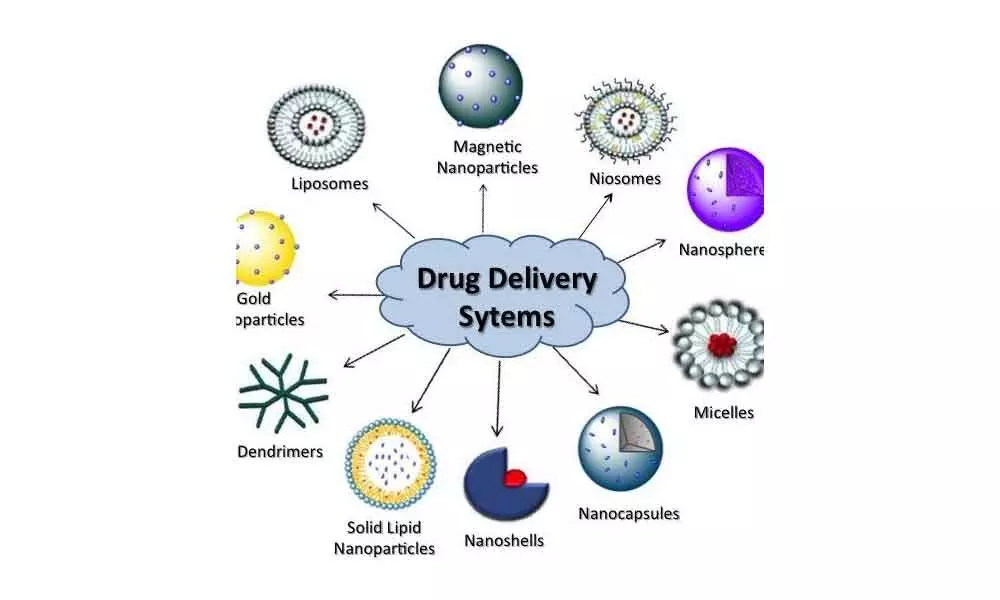IIT-D develops critical drug delivery tech
The technology is a significant success in achieving personalised therapy as it can be based on the RBC membrane of patients, thereby minimizing the side-effects
image for illustrative purpose

New Delhi: Researchers at Indian Institute of Technology, Delhi have invented a novel innovation that engineers Red Blood Cells (RBCs) to load chemotherapeutic drugs for advanced and effective chemotherapy. The breakthrough research was presented by a group at the institute's Centre for Biomedical Engineering (CBME).
According to the researchers, the technology is a significant success in achieving personalised therapy as it can be based on the RBC membrane of patients, thereby minimising the side-effects. The technology involves engineering the RBCs in the lab to produce smaller (nanosized) biocompatible vesicles. Drug molecules can simply be trapped inside the particle's lipid bilayer and circulate for a longer time. This work was validated in an animal system by Professor Neetu Singh's lab in collaboration withProf Sujata Mohanty from the All India Institute of Medical Sciences (AIIMS), New Delhi.
Professor Neetu Singh (lead researcher) and Sahil Malhotra from the Centre for Biomedical Engineering was recently published in Acta Biomaterialia (https://www.sciencedirect.com/science/article/abs/pii/S1742706120307030) and is inspired by nature's own delivery vehicle - the RBCs, and utilises its long circulating nature to address a long-standing problem of drug delivery of substantially prolonged drug circulation by delaying the recognition byimmune cells.
Professor Neetu Singh, CBME, IIT Delhi said, "The concept here utilizes body's own cells to load multiple drugs at the same time and reach tumour sites in significant concentrations. Interestingly, this nano-RBCs platform has synthetic tunability similar to other polymeric systems or the commonly used liposomes but have proved to be more efficacious."
Developers of this technology also claim that the platform can be used for multiple drugs and can prolong the residence time of drugs in the blood eventually resulting in higher accumulation in the tumour cells.
Currently, a few synthetic nanoparticles being used in nanomedicine suffer from short circulation times and are often associated with non-specific toxicity.
Prof Singh further added, "We were intrigued by nature's own oxygen delivery vehicle, the RBCs, as these are also the longest circulating cells. However, achieving complete control over the physical and chemical properties of a natural system similar to the way we can control asynthetic system is challenging. Over the last few years, we have successfully demonstrated the utilisation of RBCs for drug delivery and developed strategies where the naturally derived vesicles canbe tuned for various applications."
Speaking to Bizz Buzz, Professor Neetu said that it took overall five to six years to carry forward the research.
"Right now, there are many good drug delivery vehicles. For example, we do not have many technologies that can allow hydrophobic drugs inside the body. There are varied hydrophobic drugs available which can be utilised in a conducive manner. We still do not have good platforms… We wanted to design something which can help in delivery of hydrophobic drugs and does not have the issues that Liposomes usually pose." The preclinical studies were done on small animals, Professor Neetu said. On the next stage of research, she told Bizz Buzz, "There are a lot of things which are not very well understood. For example, we are getting it from different blood groups, which requires understanding antigens. Certain blood types are not compatible with the other types. So, compatibility with blood is going to be an issue. We would like to address those issues. This research is a step forward but there are a lot of investigations, things that we would like to study.
Asked if the technology can be utilised with other drugs she said, "There are many chemotherapeutic (drugs) only which are very potent in the category but they don't have approvals since they are not soluble. We would like to see these drugs and see if their solubility can be increased and use them in clinical practice.

